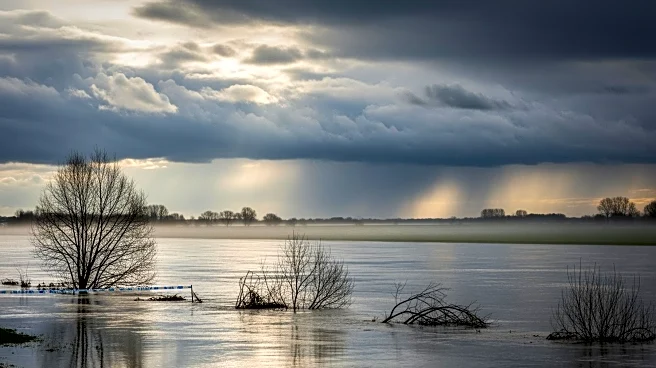What's Happening?
Recent incidents in Laos have raised concerns about the safety of tourists visiting the country. The deaths of two Australian teenagers from ethanol-tainted alcohol and an American teacher and his son
from Asian giant hornet stings have highlighted potential dangers. The families of the deceased have accused the Laotian government of corruption and a lack of investigation into these incidents. The U.S. State Department has issued a Level 2 travel advisory for Laos, urging travelers to exercise increased caution due to civil unrest and unexploded bombs near the Vietnam border. Additionally, there are warnings about bandits and drug traffickers in the northern regions close to Myanmar.
Why It's Important?
The safety concerns in Laos could impact tourism, a significant part of the country's economy. With tourism numbers rebounding post-COVID, these incidents may deter travelers, affecting local businesses and the economy. The accusations of government corruption and inadequate investigations could strain diplomatic relations and affect international perceptions of Laos. For U.S. citizens, the travel advisory highlights the importance of being aware of potential risks when traveling abroad, emphasizing the need for vigilance and preparedness.
What's Next?
The U.S. State Department may update its travel advisory if conditions in Laos change. Families of the victims may continue to seek justice and push for investigations, potentially leading to international pressure on the Laotian government. Travel agencies and tour operators might adjust their offerings or provide additional safety information to clients considering trips to Laos. The Laotian government could respond to these incidents by implementing stricter safety regulations or improving emergency response protocols to reassure tourists.
Beyond the Headlines
The incidents in Laos raise broader questions about the responsibilities of governments in ensuring tourist safety and the ethical implications of promoting destinations with known risks. The situation also highlights the challenges faced by developing countries in balancing economic growth through tourism with the need to address safety and infrastructure issues. Long-term, these events could lead to increased scrutiny of tourist destinations worldwide, prompting governments to prioritize safety and transparency.










